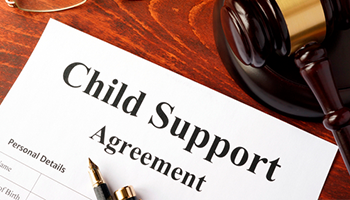Providing Knowledgeable and Strategic Guidance




Miami Divorce Lawyer
Kenneth Kaplan is a family law attorney in the Miami Dade, Broward, and Palm Beach County, and has been practicing for over 35 years. Attorney Kaplan recognizes the importance of communicating clearly and keeps you in touch with each phase of your case so that you are empowered to make decisions that best serve your personal needs. He also offers a straightforward assessment of each situation this is because he believes in setting realistic expectations during a divorce so that you can craft a strong plan for your future.
When you are crafting this plan, you may have many questions related to issues like how the property will be divided, where you will live, who will take care of the kids on a daily basis, and whether child support will be paid. Other family law matters like an adoption or a prenuptial agreement may arise under less stressful circumstances. This is why attorney Kaplan is dedicated to developing a strong partnership with each client whom he represents.
Family Law
Family lawyers provide legal advice and representation about a broad range of matters that affect family structure and status. Often, these matters are governed by rules and procedures that are specific to this area of the law. However, in some cases, such as dependency cases and domestic violence cases, other areas of law may have an impact on the outcome. It is important to consult an attorney who understands the complexities that may arise and can anticipate them.
Divorce
In Florida, you can get a divorce if you can establish that your marriage is irretrievably broken. There are no “fault” grounds by which you can dissolve your marriage, which instead must be irretrievably broken. However, the reason why the marriage broke down can be considered in some situations when determining property distribution, a parenting plan, and alimony. Either party needs to show that one spouse has been a Florida resident for the six months immediately before the divorce was filed. A Miami family law lawyer can make sure that the procedures for your divorce are properly followed so that it unfolds as smoothly as possible.
Adoption
Adoption is a legal procedure through which a child becomes part of a family other than their biological parents’ family. When a child is adopted, a legal parent-child relationship is established between an adoptee and their adoptive parents. There are four types of adoption in Florida, and each has its own procedures. These adoptions are adult adoptions, agency or intermediary adoptions, stepparent adoptions, and close relative adoptions.
Child Custody (Timesharing)
Child custody, which is now known as timesharing, has two parts in Florida. The first is parenting time, or the time that each parent spends with the child. Parental responsibility is the other part of custody. It refers to who makes important decisions for the child, such as whether they will have a medical procedure, where they go to school, or whether they practice a certain religion. The court will look at the best interests of the child when making a determination about both parenting time and parental responsibility. The child’s wishes can be a factor if they are mature enough.
Relocation
A relocation happens when a parent moves 50 miles or more from where the parents currently live for at least 60 days. Generally, this affects child custody. In some cases, the parents can agree about a new custody arrangement, determine an appropriate time-sharing schedule for the non-relocating parent, and decide how transportation will facilitate the new schedule. However, in other cases, the relocating parent needs to petition the court. The parent who is not relocating must respond promptly to this petition, and it is important to retain a family law attorney in the Miami area right away. A parent who relocates without court approval may face contempt of court.
Same-Sex Marriage and Divorce
Many of the issues that arise in a same-sex marriage or divorce are similar to issues in opposite-sex marriages and divorces. These common issues include property distribution disputes, child custody disputes, and child support disputes. However, there are often unique issues that arise, especially in connection with child custody. A non-biological parent who is in a same-sex marriage may need to adopt the couple’s child, for example, in order to have the same rights to the child as a biological parent.
Juvenile Dependency
When the Florida Department of Children’s and Family’s Services has reason to believe that a child has been abused, mistreated, neglected, or otherwise put in danger, it can petition the court to ask that the child become a dependent of the court. Parents or guardians of the child should retain an experienced attorney to defend against such a petition if they want to oppose it.
Termination of Parental Rights
There are 12 grounds provided by Florida statute section 39.806 under which a court can terminate your parental rights. One basis for termination is when a parent voluntarily executes a written surrender of a child and agrees to the entry of an order providing custody of the child to the department for adoption. Another basis for termination is abandonment by a parent for 60 days or more. Yet another basis is when a parent engages in conduct toward a child that shows that the involvement of the parent in the parent-child relationship threatens the child’s life, wellbeing, safety, or emotional health. A family law lawyer can help Miami residents fight back against a potential termination of parental rights and try to preserve their relationship with their children.
Appeals
Sometimes one or both spouses disagree with how a trial court handled some aspect of a divorce. The first step in starting an appeal is to submit a Notice of Appeal to the District Court of Appeal. When there is no automatic right to an appeal, a spouse will need to submit a petition for review. Some of the grounds for an appeal in Florida family law cases include fraud, concealment of assets, an abuse of discretion, a legal error, or the discovery of new facts.
Prenuptial and Postnuptial Agreements
Prenuptial agreements are contracts between people planning to marry that can affect financial issues during a divorce. The Uniform Prenuptial Agreement Act in Florida governs them. They must be in writing to be enforceable. A spouse trying to make sure that a prenuptial agreement is not enforced against them can try to show that their signing was involuntary or that it was based on fraud, coercion, or duress, among other grounds.
Domestic Violence
When domestic violence has played a role in your relationship, you should be aware of what a restraining order is. A restraining order is a court order that stops a person from taking specific actions. A court can issue a domestic violence restraining order that stops a perpetrator of domestic violence from taking actions against their spouse. The court is empowered to enforce the order if the perpetrator violates it. You can retain a family law lawyer in Miami to help you pursue a domestic violence restraining order if a family or household member has harmed you, or if you have reasonable cause to believe that you are in imminent danger of being harmed.
Guardianships
A guardian is a surrogate decision maker who can make financial and personal decisions for another person. Florida law allows both voluntary and involuntary guardianships. Voluntary guardianships can be established for an adult who is incapable of managing their estate or other affairs and voluntarily petitions for a guardian. Guardians must be appointed for minors if their parents become incapacitated or die, or if a child inherits a certain amount of money or wins a certain amount of money in a lawsuit.
Paternity
When a mother is married at the time that they give birth, the law presumes that the mother’s husband is the child’s father. If the mother is not married, paternity needs to be established through court order or voluntarily by the father. When there is an agreement between the mother and the father, they can sign a voluntary acknowledgement of paternity form. However, when acknowledgement is not voluntary, one of the parties or the Florida Department of Child Support Services needs to start the court process.
Consult an Experienced Miami Family Law Attorney
Kenneth M. Kaplan is familiar with the nuances and the emotional complexities of family law matters. He provides dedicated and compassionate representation to people in Miami, Fort Lauderdale, Pembroke Pines, Hialeah, Aventura, Homestead, Orlando, Boca Raton, West Palm Beach, and Key Largo, as well as other areas of Miami-Dade, Broward, Osceola, Palm Beach, and Monroe Counties. Call us at (305) 666-9797 or contact us online to arrange an appointment.
Client Reviews
If you ever need a compassionate, hardworking attorney who believes in doing the right thing for families going through a divorce, but being fair and honest, go with Mr Kaplan, Esq. He is one attorney has always been patient, up front and defending your rights with integrity. Can’t ask for any...
I would like to recommend my attorney's, Mr. Kenneth Kaplan, excellent services to anyone looking to represented for a child support or divorce matter. He can definitely be counted on. Very trustworthy and knowledgeable. He finds solutions to problems that seem can't be solved.
9/1/17 was one of the best days of my life! Mr. Kenneth Kaplan did an awesome job on my case.I would recommend him to anyone who needs a family law attorney. He's always there when I had a question, concern or needed reassurance. I was able to call, email or text him and he promptly responded. I...
Contact Us
- 1 Over 35 Years of Experience
- 2 Dedicated Representation
- 3 Contact Us Today













